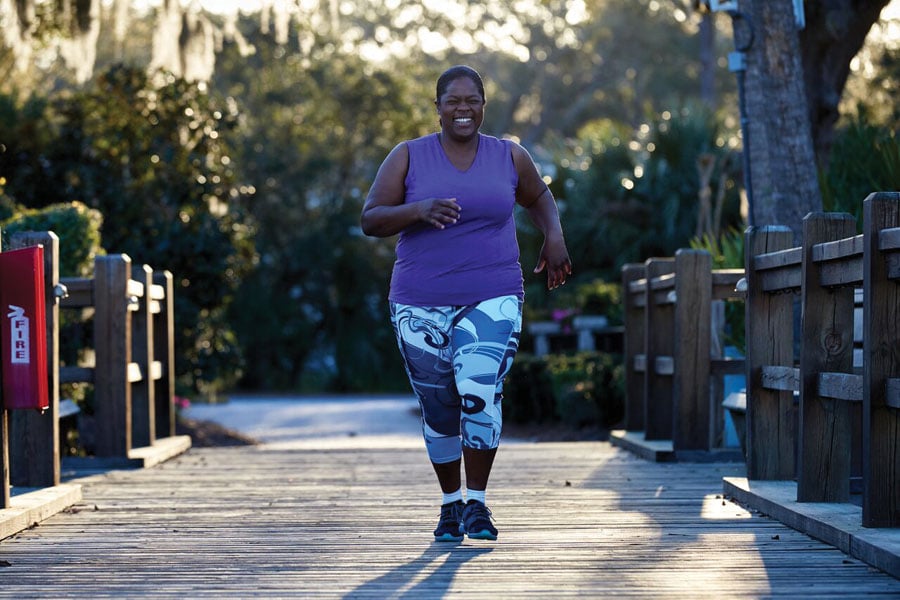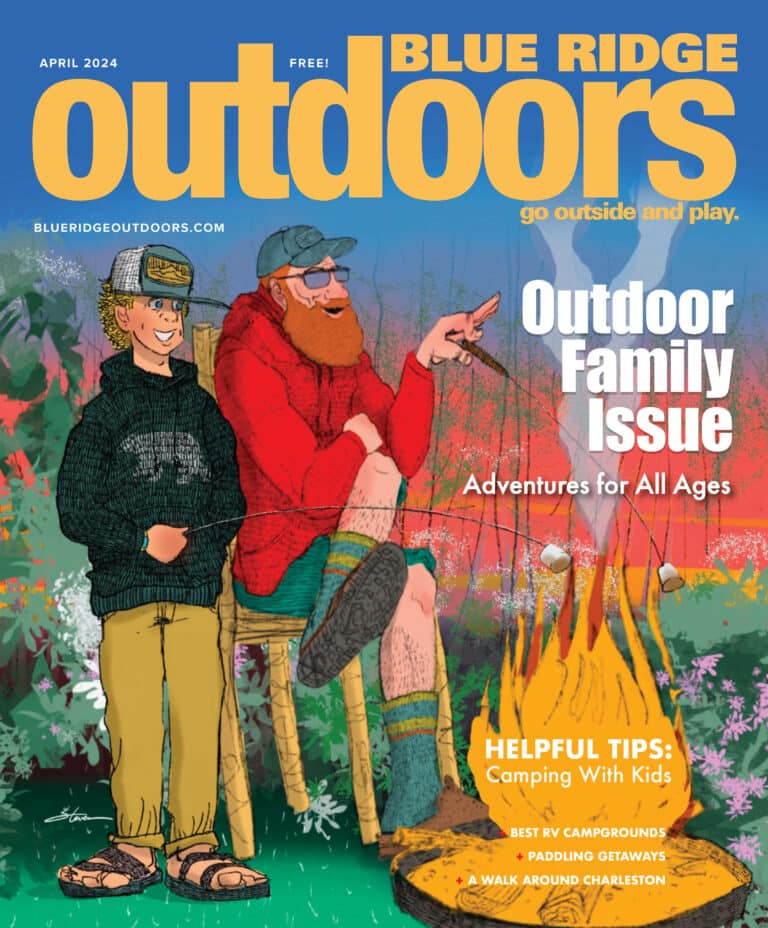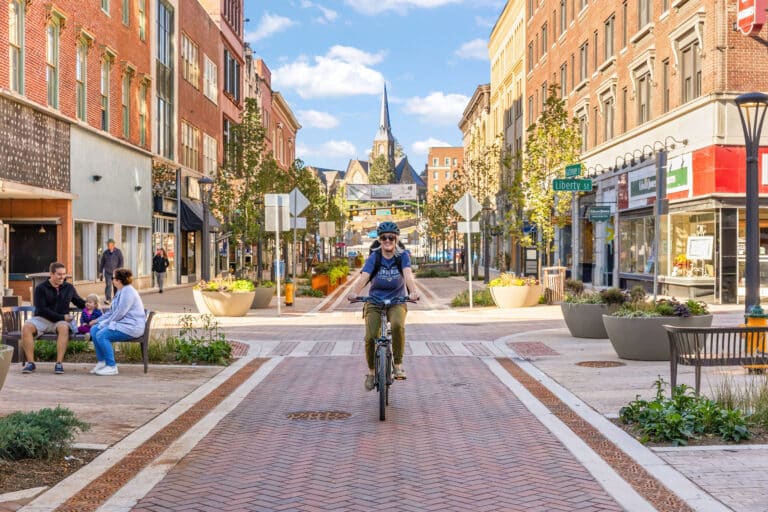“Tikki Tikki Tembo” recounts a folktale in which a boy falls into a well and is rescued by an old man with a ladder who “step over step, step over step” goes into the well, retrieves the boy, and then “step over step, step over step” carries him back out.
It turns out that “step over step, step over step” also makes a great mantra for distance runners, according to trailblazing ultramarathoner Mirna Valerio.
“It gets me through a lot,” Valerio says. “I don’t necessarily think of that folktale when I’m saying it, but it helps. One foot in front of the other. Step over step.”
The mantra accounts for Valerio’s relentless pace on runs and in life. She’s not the fastest, as she’s the first to admit, but the refusal to give up has powered her rise as an athlete, a social media phenomenon, and as of this fall, the author of a much-anticipated memoir.
Valerio is a teacher at north Georgia high school. A decade ago, a medical scare inspired her to start running. She signed up for a bunch of races, and in 2012, she ran her first trail marathon. Since then, she’s gone on to run in a series of increasingly longer races, documenting her experiences as “an active larger girl in a thinner world” on her blog, Fat Girl Running.
Media outlets started paying attention, and over the last few years Valerio’s profile has grown to the point that, although she shrugs off that term, she’s become something of a trail-running celebrity.
“Things have been kind of crazy, in a really really good way,” Valerio says. “My son is over it, though. He’s 14 years old. I’m like, hey, CNN’s going to be here, and he’s like, ‘Yeah, that’s cool.”
These days, she’s training for August’s TransRockies Run, a 6-day trek that covers 120 miles and 20,000 feet of climbing between Buena Vista and Beaver Creek, Colorado.
She’s picked up a few sponsors, including Skirtsports, Swiftwick, and Merrell. As a brand ambassador for Merrell, she has also participated in a string of Tough Mudder events in which she charged through 10 miles of obstacles, including crawling through live electric wires.
Getting shocked three times in one race “makes you realize how awesome electricity is and makes you wonder how it has the capacity to blow a 245 pound human being over like a dried-out, dead flower,” Valerio wrote on her blog about the experience.
Valerio’s appeal—to both sponsors and the more than 12,000 people who follow her on Instagram and other social media—is not surprising: she has refused to let stereotypes about her race or body shape dissuade her from getting out and taking to the trails, and her unwaveringly positive attitude encourages the idea that, hey, anyone can do this with the right frame of mind.
“This is really an extension of what I do as a teacher, which is demonstrating and being a role model,” Valerio says. “I talk about diversity, about implicit bias and sexism and racism. All of that is implicit in what I do in my public life.”
Although her story speaks to anyone who’s ever felt discouraged from running (every runner ever, really), it also speaks to a more specific group—African Americans who have felt uncomfortable and even fearful entering the woods, especially in a former state of the Confederacy like Georgia, where Valerio lives.
“Historically, African Americans weren’t always welcomed, and in some respects still aren’t welcomed, in hiking and backpacking,” Valerio says. “When I see someone on the trail who’s black or Latino, I’m like, ‘Hey! How are you? Good to see you!’ We both know what I mean by that ‘good to see you,’ because there’s not enough other people.
“It’s still not as welcoming a place as others—not just the woods in themselves, but the whole outdoor culture is not necessarily welcoming. I also get comments from black people: ‘Well, you know we don’t run in the woods. Because the last time we ran in the woods, we got hung.’ Stuff like that, from close friends! That is so collectively in the memory of African Americans. That’s sad and hurtful that people are carrying this baggage with them.”
Organizations like Outdoor Afro actively work to change that conversation and experience, and Valerio has made it a part of her mission too. And while she didn’t consciously consider the rich heritage of African American memoirs as she wrote her own, it nonetheless informed the process. It’s not a coincidence, for example, that Valerio signed with Dystel & Goderich Literary Management—the New York City firm that represented Barack Obama on his first book.
Valerio’s memoir, A Beautiful Work in Progress, is set to be published by Grand Harbor Press on October 1. With it, she hopes to take her message to an entirely new audience.
“I wanted to frame my own narrative,” Valerio says. “My goal in writing it is to show rather than tell people that somebody in my body can do something like this. I wanted to show people that if you want to run in whatever body you have, you can do it. It might be slow, it might be painful, but you can do it. And you are entitled to exercise out in public as you are.”







